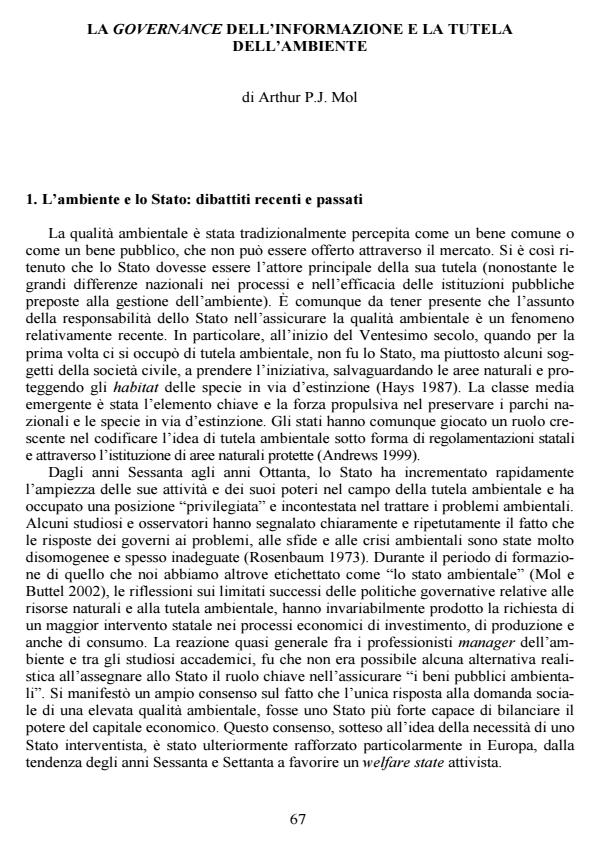La governance dell'informazione e la tutela dell'ambiente
Titolo Rivista SOCIOLOGIA E POLITICHE SOCIALI
Autori/Curatori Arthur P. J. Mol
Anno di pubblicazione 2005 Fascicolo 2005/2 Lingua Italiano
Numero pagine 23 P. Dimensione file 118 KB
DOI
Il DOI è il codice a barre della proprietà intellettuale: per saperne di più
clicca qui
Qui sotto puoi vedere in anteprima la prima pagina di questo articolo.
Se questo articolo ti interessa, lo puoi acquistare (e scaricare in formato pdf) seguendo le facili indicazioni per acquistare il download credit. Acquista Download Credits per scaricare questo Articolo in formato PDF

FrancoAngeli è membro della Publishers International Linking Association, Inc (PILA)associazione indipendente e non profit per facilitare (attraverso i servizi tecnologici implementati da CrossRef.org) l’accesso degli studiosi ai contenuti digitali nelle pubblicazioni professionali e scientifiche
Recent debates on the environmental state have hardly included the information revolution we are witnessing today. What consequences for environmental governance are to be expected from the growing importance of informational processes in almost all aspects of modern life? This paper explores to what extent and how the Information Age enables the emergence of an informational mode of environmental governance, in which environmental information gains transformative powers. As illustrated by several examples the conventional powers of authority in environmental protection are supplemented by informational resources used by state and non-state actors to change practices of production and consumption. Against this background the increasing popularity and use of voluntary agreements in environmental governance can be interpreted as informational governance half-way. These new modes of environmental transition, based on information, bring forward a new research agenda for the environmental social sciences.;
Arthur P. J. Mol, La governance dell'informazione e la tutela dell'ambiente in "SOCIOLOGIA E POLITICHE SOCIALI" 2/2005, pp , DOI: